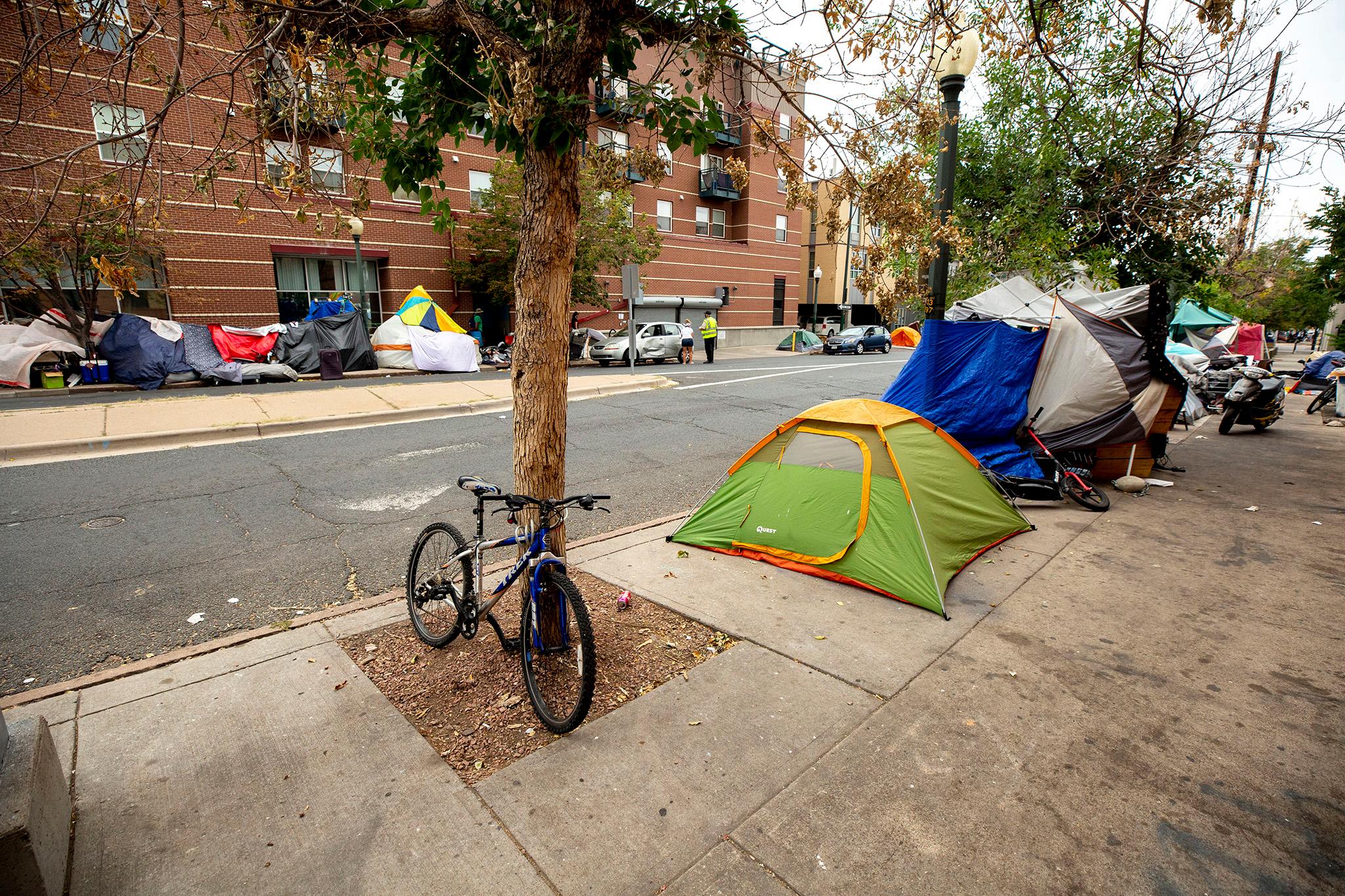What happens when you give people experiencing homelessness $12,000 over the course of a year?
The Denver Basic Income Project wants to find out. In conjunction with the University of Denver's Center for Housing and Homelessness research, the organization will study the effects of giving cash to people experiencing homelessness. Participants in the study will be split into three groups: One group will receive $1,000 per month, another will receive $6,500 up front and $500 every month afterward, and the third group, the control group, and will receive $50 per month. A total of 820 people will participate. Researchers from the University of Denver want to learn more about the differences between receiving more money upfront versus receiving money throughout the year, hence the different groups.
According to the annual Point in Time survey, a one-night count of people experiencing homelessness in Denver, 4,171 people were unsheltered in 2020.
Mark Donovan is the founder of the Denver Basic Income Project. He said this is the first study of its kind in the U.S. specifically researching the effect of giving cash directly to people experiencing homelessness.
The project was modeled after the New Leaf Project, the first direct-cash transfer program in the world for people experiencing homelessness, and the Stockton Economic Empowerment Demonstration, which awarded 125 residents in the California town $500 for two years.
Donovan provided the initial seed money for the Denver project, which is being funded through private donations.
"I was sitting back last year as COVID hit, watching my net worth go up with my Tesla investment that grew by 700 percent while people were going out onto the street and losing their jobs and their income," Donovan said. "I realized that I was in a position of privilege where I could make a difference now."
Researcher Jennifer Wilson expects the project will have an effect on the mental health of the participants.
"Research definitely shows that participants who are involved in programs like this, they experienced decreased stress, decreased depression, anxiety," Wilson said. "(They experience) increases in overall life satisfaction, general cognitive function ... people report increased confidence around taking risks, like going back for that extra training, applying for new jobs, starting small businesses."
Denver Mayor Michael Hancock said he supports the project.
"The Denver Basic Income Project is an opportunity to explore how the philanthropic community and private sector can augment public support for those living in poverty, particularly our unhoused neighbors, and extend that hand up to stability," Hancock said in a statement.











